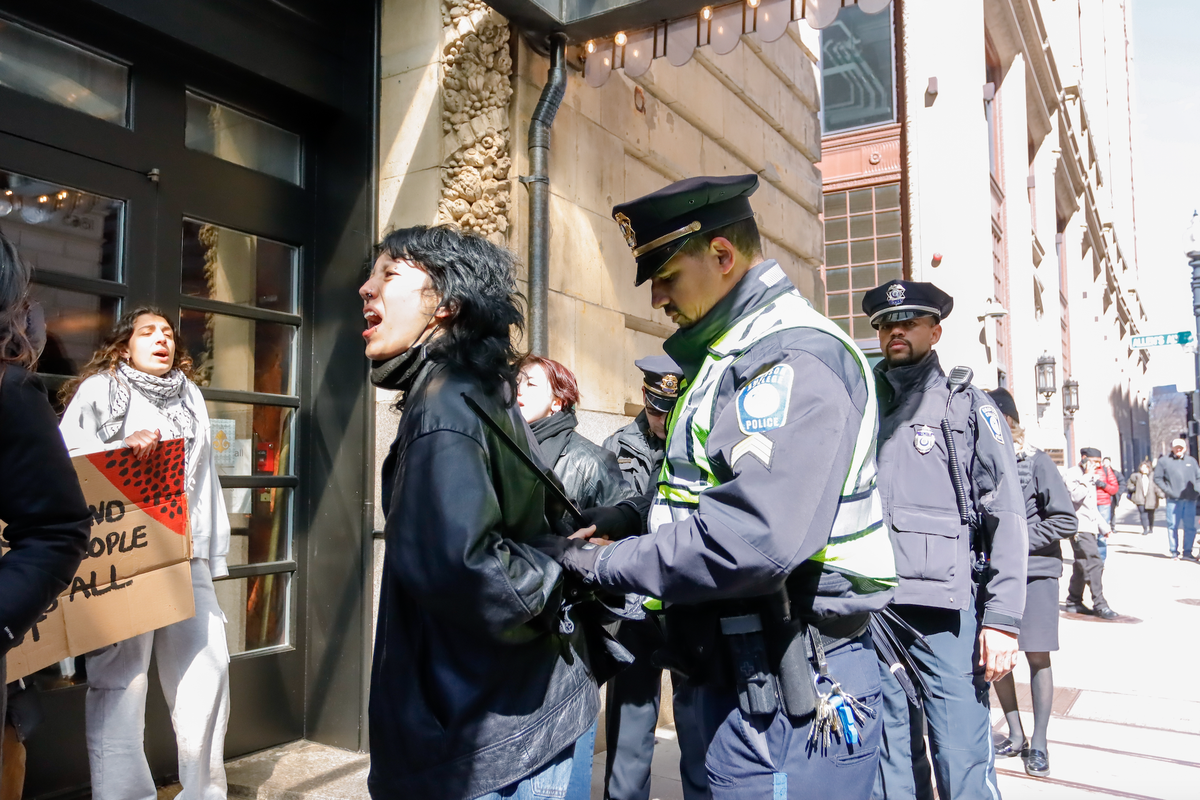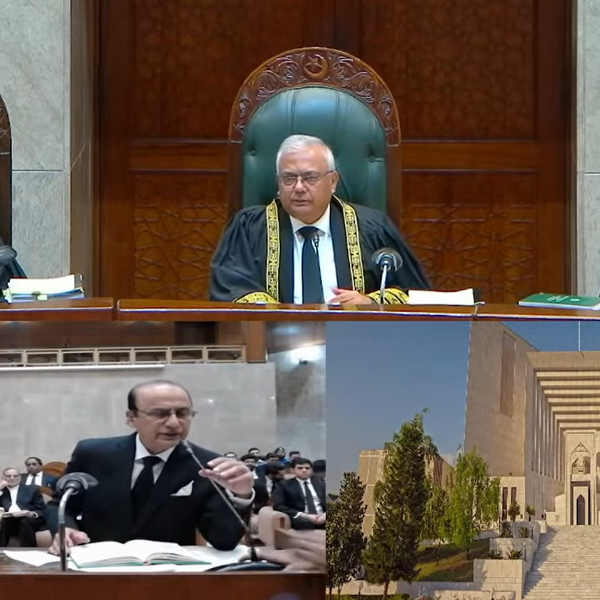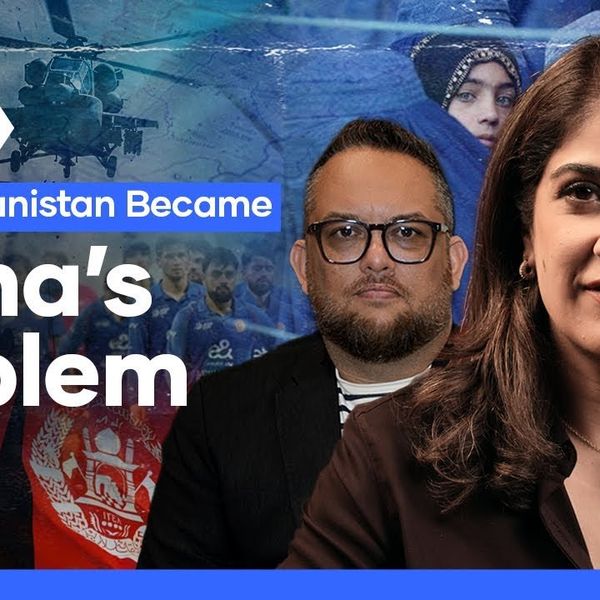Trump administration's decision to revoke international student visas triggers chaotic departures
Some students are deciding to leave for home countries saying they are choosing dignity over dreams

Gaitty Ara Anis
Correspondent-USA
Gaitty Ara Anis is a seasoned multimedia journalist based in Washington, D.C., she specializes in digital content creation, including writing and video production. Currently, she represents Nukta as its correspondent in the USA. She has been previously associated with Voice of America, Dawn, CNBC, PTV World and Geo News over the past twenty years.

Over 1 million international students attend US universities annually, but new visa crackdowns cast a dark shadow
Shutterstock
Shadow of fear and uncertainty over campuses once known for openness and academic freedom
These universities rely heavily on the money international students bring in, says attorney
Over 1 million international students attend US universities each year, contributing $43.8B to the economy, says ACE
Hameed* was a third-year engineering student at an Ivy League school on the East Coast until last week. But after receiving a sudden notification that his visa had been revoked, he found himself packing his bags—unsure if he would ever return to complete his degree.
“My visa was revoked a few days ago, and I cannot recall any reason other than a speeding ticket I got last year," he told Nukta.
Overspeeding, in most cases, is a traffic infraction—not a federal crime.
The Trump administration's decision to revoke at least 300 international student visas across the United States has triggered a wave of urgent and chaotic departures.
Way out
Hameed's case is not isolated. Haroen Calehr, an immigration attorney based in Texas, says he is working around the clock to support panic-stricken students.
“It’s a widespread misconception that all the revocations are linked to student protests or terrorism allegations,” Calehr told Nukta.
He emphasized that visa revocation does not immediately make someone illegal, and that legal options—such as filing an appeal within four weeks—exist for those willing to fight their case.
Meanwhile, universities across the country have reported students being forced to leave immediately, often after learning of their visa cancellation via SEVIS—the Student and Exchange Visitor Information System, a federal database managed by the Department of Homeland Security that tracks international students and scholars—or even through an unexpected text or email.
Multiple educational institutions approached by Nukta declined to comment, citing student confidentiality.
Hardline stance on immigration
The Trump administration has upheld a hardline stance on deporting undocumented and "illegal" residents since the start of its second term in January 2025. But what began as a crackdown on violent offenders soon expanded to include international students, especially at universities that witnessed large-scale pro-Palestinian protests in response to Israel's war on Gaza.
The rationale behind these revocations has grown increasingly vague.
Last month, Mahmood Khalil, a Palestinian student at Columbia University, and Badar Khan Suri, an Indian postdoctoral scholar at Georgetown University, were arrested on allegations of anti-Semitism and posing a “threat to national interests”. Both had their F-1 visas revoked. Their U.S. citizen spouses and children are now trying to navigate legal channels as the men remain in detention centers in Texas and Louisiana—thousands of miles from home.
The arrest of Kseniia Petrova, a Harvard Medical School researcher and anti-Putin Russian scientist, at a U.S. airport in late March has further fueled concerns about the opaque criteria for detentions.
'Free speech thing of past'
The list of deportees grows longer each day, casting a shadow of fear and uncertainty over campuses once known for openness and academic freedom.
Tahira*, an undergraduate student at Georgetown, said, “We feel helpless in the face of this shift in government policy.”
She explained that many international students wanted to protest the treatment of fellow students like Suri—but chose silence out of fear.
“We’re extremely cautious about how we’re perceived. For most of us, the freedom of expression feels like a thing of the past,” she said.
University administrations have expressed concern, but students say their power is limited.
“They warned us to be careful, to restrict international travel—but it made no difference,” Hameed said.
Economic impact
Attorney Calehr believes more pushback is needed. “These universities rely heavily on the money international students bring in,” he noted.
Ted Mitchell, president of the American Council on Education (ACE)—the major coordinating body for the nation's colleges and universities—echoed these concerns. In a recent statement, ACE warned that mass visa cancellations could undermine the “cultural vibrancy of institutions”.
The organization also highlighted the broader economic impact: over 1 million international students attend U.S. universities every year, contributing $43.8 billion to the economy and supporting more than 375,000 domestic jobs.
Dignity over dreams
But with a volatile economy, widespread layoffs, and growing uncertainty around their legal status, many students are rethinking their future in the U.S.
“I have an internship offer from a well-reputed organization, but honestly, I doubt I’ll take it,” Tahira said.
As the summer break approaches, students like Tahira are weighing whether they’ll be allowed back in if they leave.
“We're being discouraged from traveling,” she said. “I know people whose devices were searched when they tried to return.”
Some are choosing to leave on their own terms before they're forced to. Hameed said his parents call every day to check on him.
“I’ll miss my life and friends here,” he said. “But if you ask me, my dignity is more important for me than staying here and facing unjust discrimination."
*Names changed to protect privacy










Comments
See what people are discussing